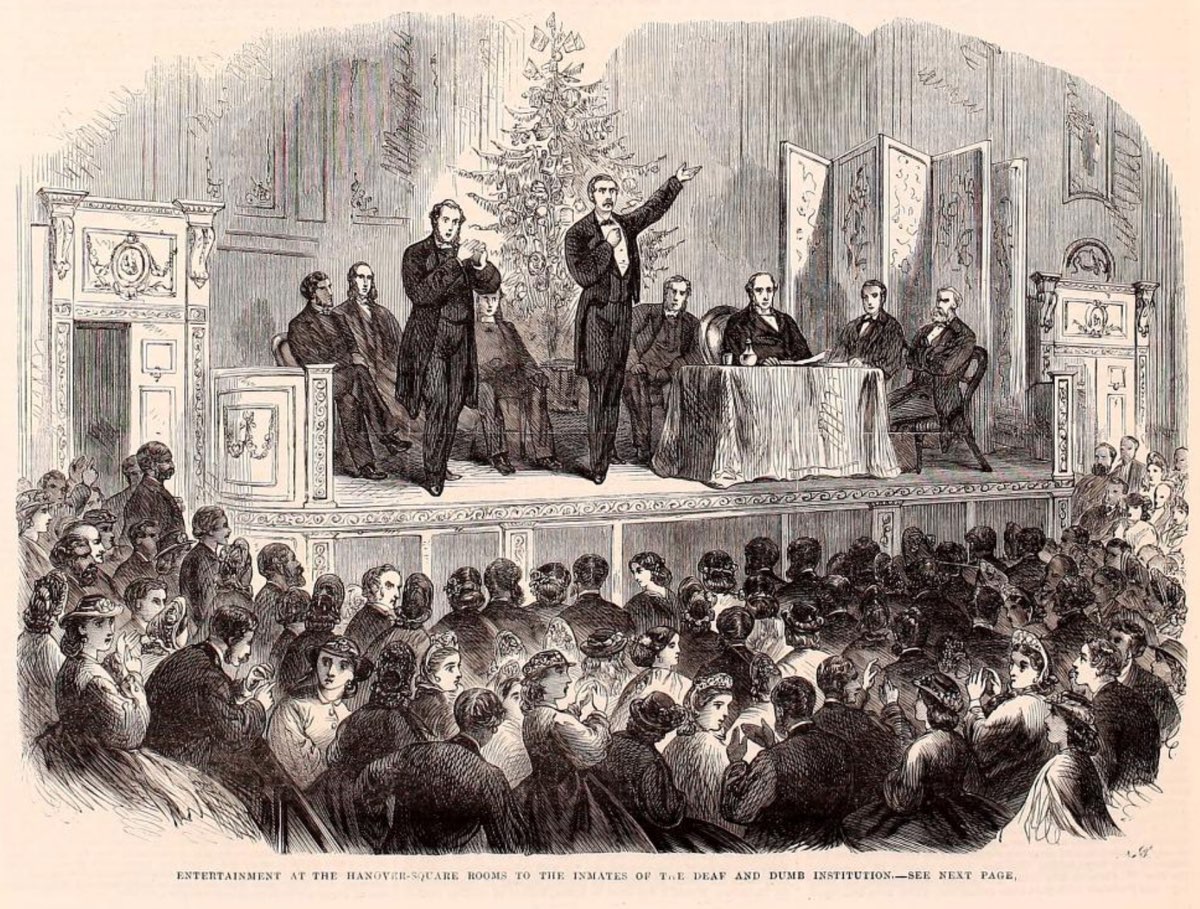Three Good Questions
This is the next in an ongoing series of posts about historical research, featuring news articles, adverts, and other sources mostly from Britain in the 19th century.
Just for fun, imagine you stumbled across the article reproduced below during your research. What could you learn from it? How many research rabbit holes would it lead you down? In what new directions might it take your writing?
If you interrogate the image and words closely, what Three Good Questions would you want answers to first? You can send me your suggestions via the form at the bottom of the page.
I’ll collate the questions, and begin to answer some of them, in a follow-up post. Subscribers to the ThreesWrite Newsletter will receive that before it’s published on the website.
Here are my first Three Good Questions:
- Why were the people without hearing referred to as deaf “and dumb” at that time?
- If the fundraising soirée was only the second event of its kind in two years, was the association still relatively new? (and did it go on to flourish for the benefit of the Deaf community?)
- Was the “finger language” in use in 1865 the same as modern British Sign Language?

Illustrated London News (21st January 1865)
ASSOCIATION IN AID OF THE DEAF AND DUMB
The second annual soirée of this association was held at the Hanover-square Rooms on Monday week. It was attended, not only by the subscribers and friends of the association, but also by a large number of the deaf and dumb themselves. After tea the chair was taken by Mr. Philip Cazenove, who addressed the meeting in a short speech, which the Rev. S. Smith, the chaplain of the association, translated on his fingers for the benefit of the deaf and dumb visitors. On the conclusion of the chairman’s speech, Mr. Smith exhibited the phenomenon of an address delivered simultaneously to the ears and eyes of the different portions of the meeting. He informed them that, although sufficient funds had not yet been accumulated to allow the committee to begin to carry out the objects of the association, they were in hopes that before another year had passed they might be enabled to commence. The objects in view were:— First. A place of worship for the deaf and dumb, who could not benefit by oral instruction and had generally too limited a knowledge of book-language to read the service to advantage. Secondly. To give assistance to aged and infirm deaf mutes, some of whom were known to be working for a bare subsistence at upwards of seventy years of age. Thirdly. To provide a room for weekly lectures and for weekly reading, where the deaf and dumb might meet together to improve themselves and interchange ideas. In aid of these objects about £2000 had already been raised. The Queen had showed her interest in the undertaking by a donation of £50. Lord Carbery, himself deaf and dumb, had given £100; and if another £1000 were raised the committee thought they might commence the work. It was not easy to find a site such as was needed, and it was thought advisable that the institution should be located somewhere between Portland-place on the one side and Gray’s-inn-lane on the other. Mr. Smith said he also hoped to raise a fund to give prizes to deaf mutes for proficiency in painting, skill as workmen, or steadiness of conduct. Some of them were good artists. A deaf and dumb artist had only the week before gained a silver medal at the Royal Academy. Mr. Smith’s speech was closely attended to, and those who watched him frequently gave loud tokens of their approbation. The Rev. Arthur Casimir, Dr. Grosvenor, the Rev. W. Cadman, and other gentlemen, also addressed the meeting; and Professor Artis gave some recitations, which were translated, like the speeches, by Mr. Smith into the finger language of the deaf and dumb. After a vote of thanks to the chairman had been passed, as the serious business of the evening was over, its lighter entertainments were commenced by Professor Matthews, who ascended the platform and exhibited some wonderful tricks of legerdemain. He announced that he would perform a whole evening for the benefit of the funds of this association. This was followed by a performance [of] vocal music, Mr. Wass’s new cantata being sung by a party of amateur friends; and the evening closed with the illumination of a Christmas-tree and the distribution of many articles thereon suspended among the juvenile visitors. We give an illustration of this entertainment for the sake of its benevolent object.
Source: Illustrated London News (21st January 1865)



